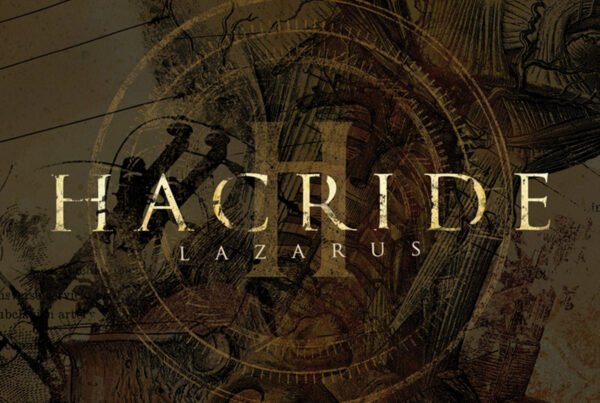Welcome to the latest edition of Sound Test, a feature where we explore the music of video games, and how the score enhances the experience of the game itself. In this latest edition, we wanted to direct your gaze back to the Mass Effect trilogy developed by Bioware for Xbox 360 first, then eventually also Playstation 4 and PC. This series of games not only defined a lot of modern RPG tropes, but brought with it a range of emotions; from sheer empowerment to seething anger. Because of that latter emotion and its relation to the last two games of the series, I decided to lock down on the best of the trilogy – Mass Effect 2.
Mass Effect 2 told one of the greatest stories in gaming history. In the first Mass Effect, we slowly unraveled a sinister plot, hatched by a rogue Turian (one of the many species of alien in the game) called Saren. It turns out that Saren was trying to bring a race of sentient alien machines called the Reapers to the Milky Way in order to reset life as we know it. Having foiled these sinister plots by killing the puppet master of the invasion, Sovereign, we leave our hero Shepard, touting to end the Reaper threat once and for all.
The story picks back up with what could almost be a prelude to the current political climate we find ourselves in – fighting enemies that we should be trying to understand. We begin Mass Effect 2 back on the SSV Normandy ship, hunting down the last scraps of Geth resistance, completely diverted from the Reaper target which threatens to wipe out organic life in our solar system. But not before we’re teased with a scene from one of the game’s many antagonists – the Illusive Man. The soundtrack to his scenes are very Mass Effect – spacey, minimal background music that inspires intrigue, whilst also giving a sense of dread and foreboding. The sounds are electronic, and are thrown through all number of filters to present an extremely futuristic palette. This short, but powerful scene sets the stage for the prologue and really knocks back the good feeling you got after defeating the first Reaper attempt.
As the cutscene returns you to the familiar scene on the Normandy, that sense of dread isn’t dispelled. A lot of the Mass Effect music is very Tubular Bells at times, and in this next cutscene it is used liberally – that is until the Collector alien ship turns up. A subtle crash from a gong cymbal alerts the player that it is time to get worried. The music shifts quickly into a powerful orchestral piece, that escalates as the Collector threat becomes more apparent. The score fits beautifully around the laser bursts from the enemy ship, and soon thereafter morphs into the Collector’s theme song. This is an extremely emotive piece that, having seen your beloved spaceship torn asunder will fuel your rage for the coming game. The reason I love this part of the score so much becomes apparent as you gain control of Shepard and make your way to the bridge to save Joker, your ship’s pilot.
Exiting from a door, suddenly the chaos of your wrecked ship and the score is muted, as you step into the nothingness of the space vacuum. Getting back through a force field, the score returns, reaching a fervour that completely grips you. As the Collectors deliver the death blow to the Normandy, Shepard is lost to space and the score disappears again. As the oxygen is sucked from Shepard’s suit in space, a melancholic piano finishes this most startling of opening cutscenes, leaving the player totally dumbfounded.
After this gut-wrenching beginning to the game, things start to turn themselves around for the player. Thankfully, it is a science-fiction game, so reanimating dead tissue that has been exposed to the vacuum of space is absolutely a possibility. You regain control of Shepard, team up with the Illusive Man and Cerberus, there is another triumphant moment in the Mass Effect 2 score. As you finish up your debrief with the Illusive Man post-mission, his theme song drifts away, and you’re introduced to a building orchestral score as the Normandy SR-2 is unveiled. As the cinematic inspects the new ship, the score rises in volume and pumps you full of a feel-good mood. This is the start you were expecting; now it is time to go and fight the Reapers.
Composer Jack Wall was at the helm for both of the first games of the series, and composed the majority of the music. The first game had quite a light soundtrack, and it is obvious that in Mass Effect 2, they went for a much darker feel to the game. Those who ran through the first game will remember the light, fluffy sounds of the Citadel Presidium. The Citadel’s hub is now deeper in the station, and with it comes grittier ambient music to match the scenery. The music is more like Blade Runner – dark and moody – which compliments the much more intense storylines you’ll find down there, and also in the rest of the game. The ambient scores are needed in the game – when they do drop off and you’re left with just the sounds of a spaceport, the game seems empty at times.
As you assemble your team, you are carted around the universe, the scores are used universally, with combat music linked to the enemies faced. You’ll also hear individual scores for each character’s mission. One of the best I found was for Garrus (Arcangel). His score is very emotional, beginning with an intense battle with raging strings and horns, before a quick and intense reunion where an emotional ambiance plays, before finally forcing buckets full of worry and anxiety upon the player with a final, sombre piano piece. Listening to the score in depth, it is amazing how the composers move so fluidly between electronic and orchestral ambience, something you might not pick up in the heat of a battle.
There are two different ambient pieces I want to talk about next before we start to look at the bombastic final mission. Mass Effect 2‘s main enemies as mentioned are the Collectors, an insidious race who are abducting humans from colonies on behalf of the Reapers, the overarching enemy. Collector missions are interspersed throughout the game, usually occurring without your say-so – something that makes them equal parts frustrating and equal parts gripping. The ambient Collector sound is incredibly ominous; deep, undulating bass permeates the background as slow, highly reverbed synths play a harrowing tune on top. They nailed this piece with regards to the context of the Collectors themselves – unknown ancient enemies with high-tech equipment – and the music plays off this contrast well. This spacey, intense music gives way to grand orchestral pieces as the fighting begins, but the sound will linger with you and haunt your dreams.
The second ambient piece I’d like to highlight is what is likely the most iconic music from the series. Upon opening the galaxy map, you are greeted with one of my favourite ambient tracks of all time. This track is very Tubular Bells, with multi-layered electronica creating a relaxing and explorative feeling. Synths are used perfectly in this song, with the composers interjecting infrequent but powerful blasts, to give it the most sci-fi feeling imaginative. This music keeps you sane as you mercilessly mine planets of minerals with probes, whilst also offering light relief after some of the more challenging levels, especially if you play the game on insanity mode. It is very similar to the piece used in the first Mass Effect, but it was much more fleshed out this time, allowing the player to linger on the map longer.
As the game progresses and you begin to rattling the Reapers’ cage, the story escalates. You find yourself under attack again from the Collector ship, who whisks away the majority of the Normandy’s crew. This sets you up for the final mission nicely, and leaves you with a dilemma: finish the game now, or grind out those last crew loyalty missions. The score is there to help with that again, and those who have grown attached to some of the NPCs will find it tricky to see (or hear?) past the incredibly emotional music used during this attack. There are another 1000 words which could be spent on the DLC missions that you can attempt in this game, too, but we’re going to launch right into the final mission.
Most bystanders would comment that Mass Effect and endings don’t go so well, however that is only correct when applied to the third game. ME2 has one of the greatest endings to a video game, complemented by the exceptional score. You’re travelling through an uncharted relay, and death is practically a given. Aptly named the ‘ Suicide Mission’, your hero embarks with his newfound crew, to take down the Collector threat and save all the thousands of humans collected by the Collectors. The score here takes on a different form, escalating in its fervour and imbuing real power in the player. Some games introduce their main motifs too early – Mass Effect 2 dabbles with them, but leaves it to the end to give you the full whammy.
First up – picking your teams roles. Big speeches from the hot-shots in your crew are complemented with a score than again blends the futuristic sci-fi music with orchestral scores. Horns are used to pump the player up and feel majestic as you make the big decisions for your team and the fate of the universe.
The score escalates as your crack squad and the rest of your team battle through the main Collector base. With the orchestral pieces driving home every small victory against the Collector horde, you’re soon lost in the madness of this mission. Despite a slowdown and a de-escalation to an ambient score follows as you push through Collector swarms, you soon make it to the final part of the mission. The Collectors theme song is used as a respite from the ‘Suicide Mission’ score, which has the profound effect of making it feel like not everything is OK. It works perfectly as you wind up at the Collectors final objective – a human Reaper. As you battle this intense hybrid synthetic monstrosity, the score escalates to “The End Run”. This piece is solely orchestral and really lights the player’s fire, helping them to overcome this terrible machine before the final cutscene. However, whilst the huge string sections and adventurous horns bring you relief at the end of a long campaign, the final cutscene, depending on the choices you made in the game, can still take away some of the NPCs who you’ve grown accustomed to. This contrast is funny, and I distinctly remember one time hearing the roar of the horns whilst watching my least favourite character – Tali – die in this cutscene, and feeling no remorse because the feeling of completion was so much better!
Throughout Mass Effect 2, the music drives engagements and aids the exploration of the levels, as you search for gear and hidden stories dotted in the game. It creates atmospheres that send you into the future and to other worlds, using both conventional orchestral pieces and sci-fi soundscapes. All the while, it steers clear of monotonous sounds which make you regret visiting a place and focuses instead on delivering a rich experience in each new location. Mass Effect 2 is a forever game, and I really wish the publisher EA would bite the bullet and remaster them, so they can be immortalised for the new gen and beyond.
The main Mass Effect trilogy was released last generation, but is still easy to acquire and play. Check the game’s official site for more information!






